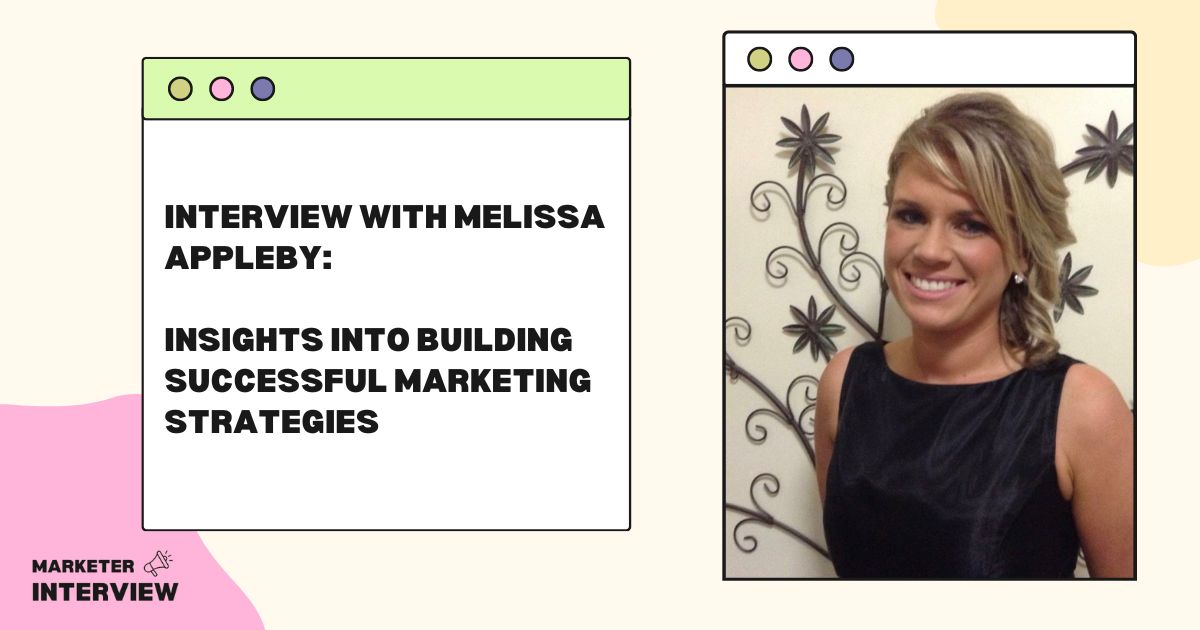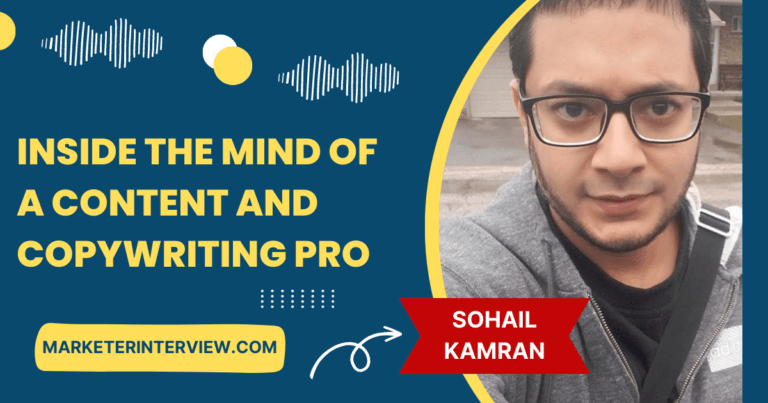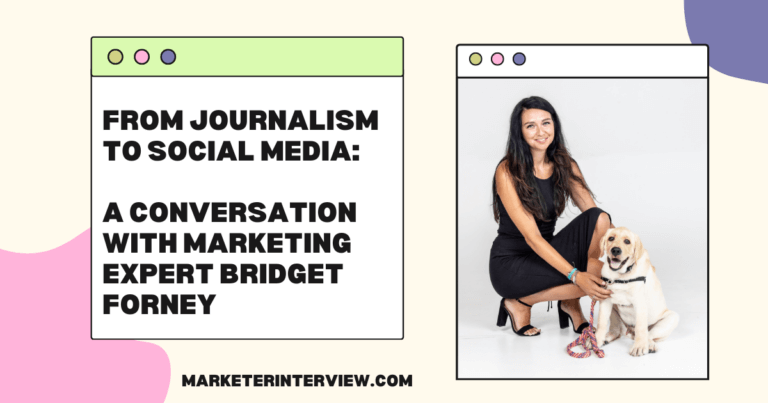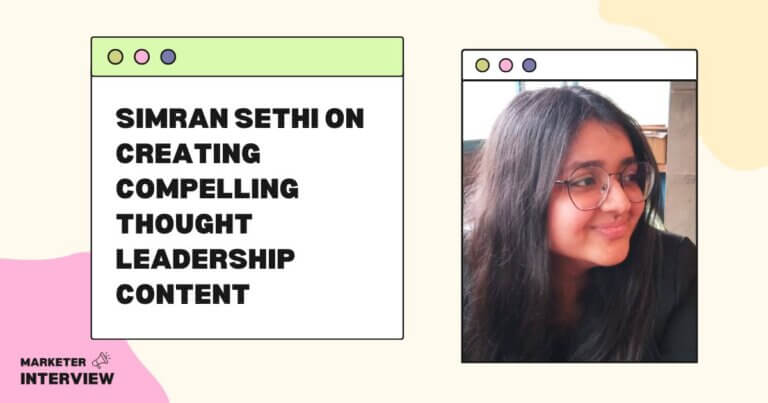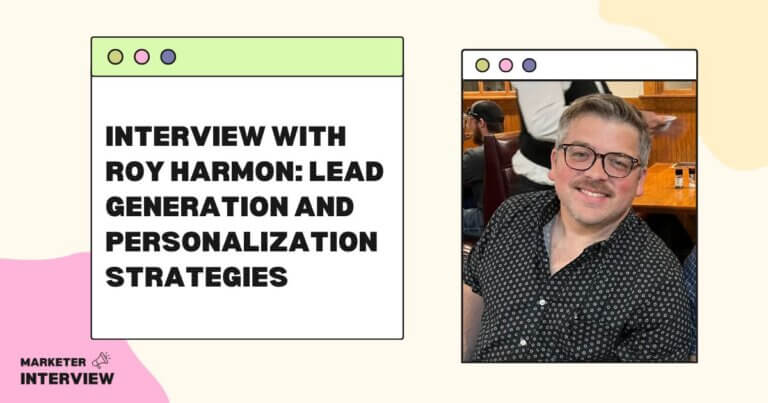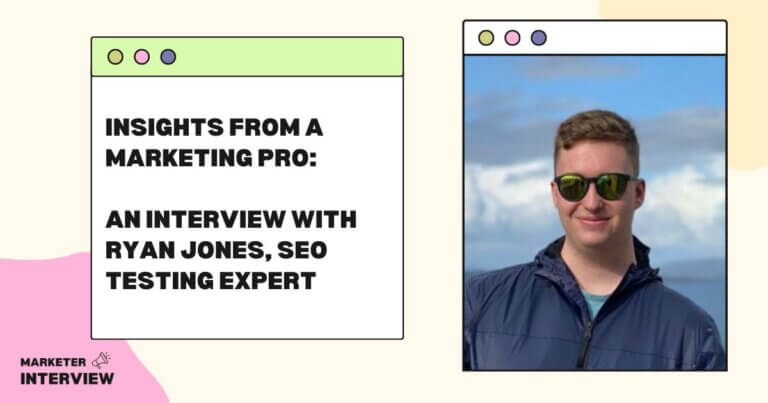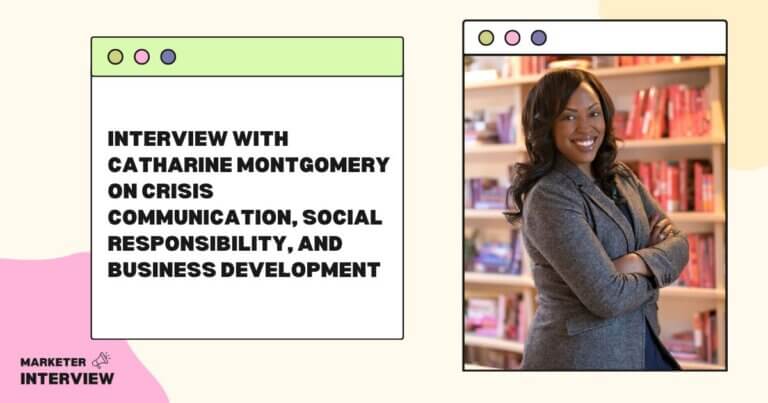Interview with Melissa Appleby: Insights into Building Successful Marketing Strategies
Welcome to Marketer Interview!
In today’s interview, we’ll speak with Melissa Appleby, an experienced Head of Marketing at Affinity Payroll, who has been in the marketing industry for over 12 years.
Melissa has a strong background in creating effective marketing strategies and driving engagement, sales and thought leadership.
In this interview, Melissa discusses her career journey, successful marketing campaigns, content creation, measuring marketing efforts, staying up-to-date with marketing trends and technologies, and the role of leadership in marketing.
Let’s dive in!
Contents
- 1 How did you first become interested in marketing?
- 2 What strategies have you found to be the most effective for driving engagement and sales?
- 3 Could you share an example of a successful marketing campaign you’ve led?
- 4 How do you approach content creation for Affinity Payroll?
- 5 How do you balance the need to create content that appeals to your target audience with the need to stay true to your brand’s voice and values?
- 6 How do you measure the success of your marketing efforts?
- 7 How do you stay up-to-date with the latest marketing trends and technologies?
- 8 Can you discuss the role of leadership in marketing?
- 9 What advice do you have for marketers who are just starting out in their careers?
- 10 Could you share some of the key tools and software programs that you use?
How did you first become interested in marketing?
I always wanted to become a journalist, but while studying communications and media subjects I found a more satisfying pathway in marketing.
After graduating I was chosen to take part in the inaugural marketing internship at the University of Wollongong Innovation Centre where I had to create a “marketing kit” to advertise an intelligent knee sleeve constructed out of polymer technology.
This was my first taste of marketing in the wild and it kick started my 12 year career in the industry.
What strategies have you found to be the most effective for driving engagement and sales?
Driving engagement is all about creating content that benefits the consumer. If you’re not entertaining or educating your audience, they’re unlikely to re-engage with you.
To create engagement that translates into sales you have to really know your target market. Who are they, where do they live/work, what are their pain points and purchasing patterns?
Marketing is about selling solutions to problems and that’s the case no matter what you’re marketing. Market research is the best place to start and having on-going conversations with your customers and front line staff will make sure you are able to pivot your messaging if/when something in the market changes.
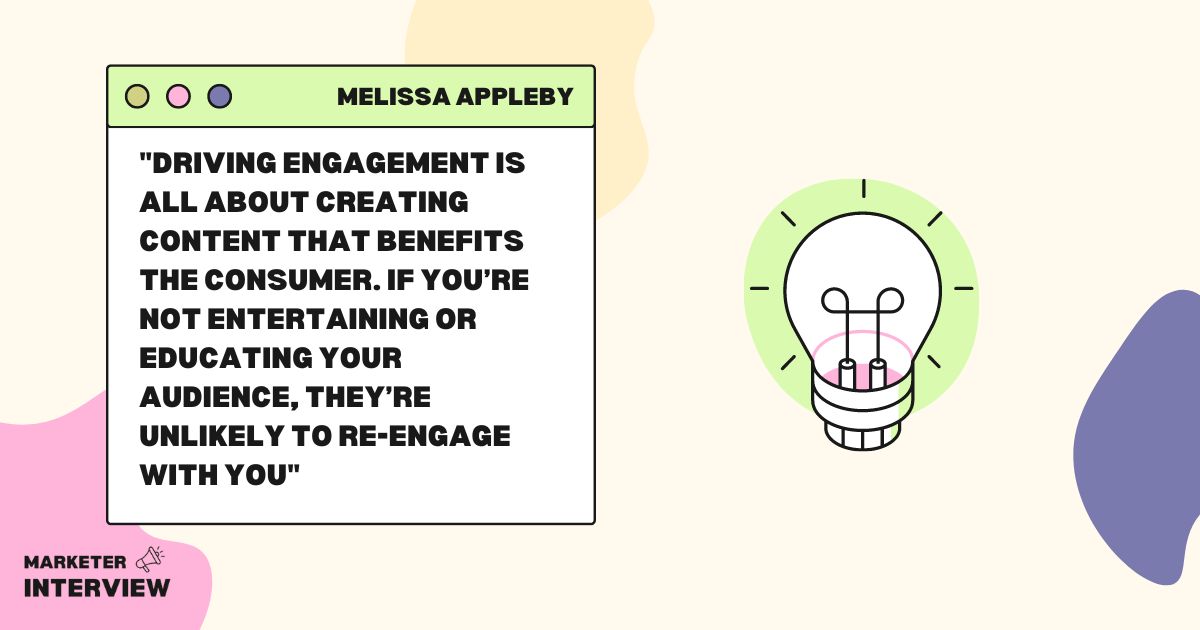
One of the most memorable (and fun) marketing campaigns I’ve led in my career was launching a new personal loan product.
As a company we had previously only sold home loan products, so this was an entirely new target market and approach for us and one that resulted in the company exceeding our projected application target in the first month.
The launch was a multi-channel ATL and BTL campaign that included sports sponsorships, TVCs, web/social advertising and direct mail.
What made it so successful in my opinion was that I was engaged really early on to work with our Innovation Centre in the development and testing of the product. I was then able to devise a marketing strategy with a deep understanding of how and why we had developed the product which made articulating the CVP much easier.
Working closely with product/development stakeholders gives you a unique perspective that will inform how, when and where you go to market.
How do you approach content creation for Affinity Payroll?
At Affinity, we develop a lot of thought leadership content. Our goal is to create a movement in the payroll space to make sure businesses are paying people properly and enhancing the employee experience around pay.
Our content is a balance of needing to know information for today, details on how to transform your business for tomorrow and some more blue sky thinking around what the future might look like.
How we deliver that is through blogs, eBooks, guides, webinars and videos that are distributed through our owned web and social channels and through a series of partner websites and newsletters.
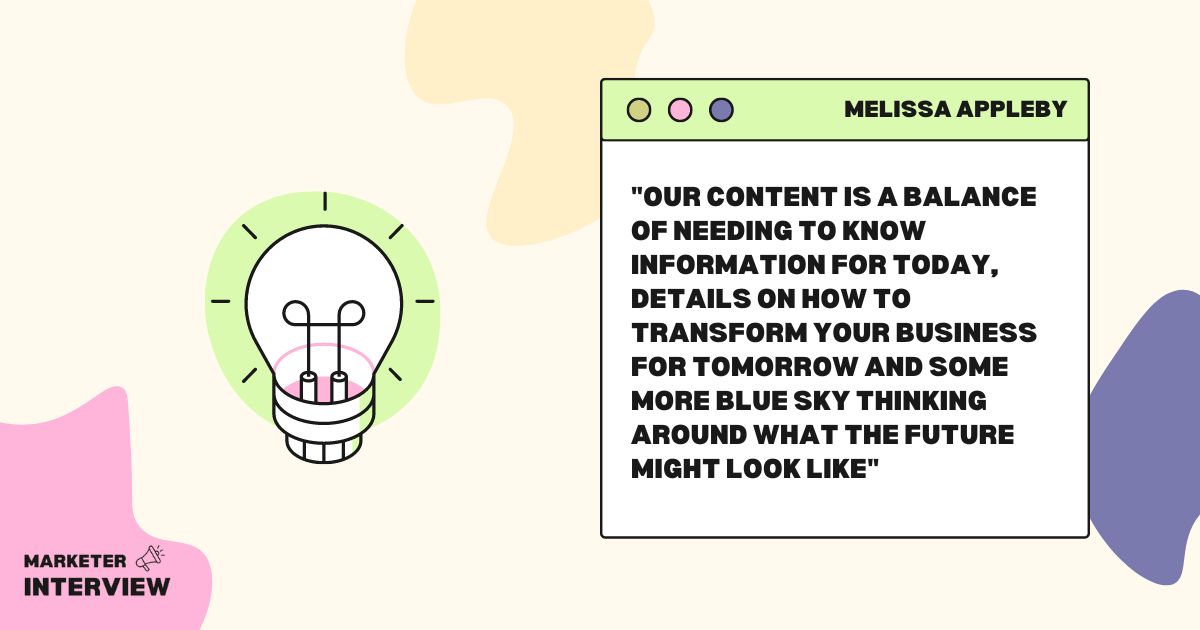
How do you balance the need to create content that appeals to your target audience with the need to stay true to your brand’s voice and values?
We decided early on that our TOV was going to be clear, concise, conversational and above all else – human. For a complex product like payroll, this helps us really deliver in line with our values and brand, but also create content that appeals to our audience.
Payroll is very technical, but we’re bringing some more colour and warmth to it with our content strategy. There’s not enough payroll content available and we’re doing what we can to change that, in a way that makes our target audience want to come back for more.
How do you measure the success of your marketing efforts?
It can be tempting to try and over-report on marketing effectiveness, but it’s imperative that marketers focus on the metrics that matter.
Those metrics are going to be different based on your campaign, product, audience and business strategy but ultimately they should show you what’s working and what isn’t so you can optimise appropriately.
As a B2B marketer, I prioritize intent metrics. I’m measuring the volume of direct enquiries, number of demos booked and monitoring repeat engagement metrics for our prospect list.
For each campaign I’m calculating Return on Marketing Investment (ROMI) and keeping a close eye on our CPL and CPA to make sure I put more spend behind initiatives that are delivering the best results.
How do you stay up-to-date with the latest marketing trends and technologies?
The marketing landscape is constantly changing so it’s incredibly important to stay across updates in our sector.
I find joining industry associations like the Australian Marketing Institute, ADMA, the Digital Marketing Institute to be the best way to do this. They have a wealth of resources and courses you can complete to stay ahead of the game.
In addition to this, signing up for marketing newsletters and following thought leaders on LinkedIn are incredibly effective ways of facilitating continuous learning.
Can you discuss the role of leadership in marketing?
Leadership is incredibly important in marketing. There’s so much to learn and a number of ways you can specialise these days, so it’s important to find not only good leadership but a trusted mentor to give you direction and advice when you need it.
What I’ve admired in leaders I’ve worked with throughout my career is a high degree of competency across the marketing mix, no fear of getting their hands dirty, their ability to create a positive culture and inspire their team, and strength in communicating the value marketing provides to the rest of the organisation. These are traits I’ve actively tried to employ in how I lead teams.
I’ve always taken the approach of firstly working out what motivates my team, both collectively and individually. Once you know how they work, how to commend them on a job well done and how to deliver feedback to help them improve, it goes a long way towards their development.
What goes hand in hand with this is having a clear understanding of what their goals are. When you know where they want to go in their career it’s a lot easier to work out their development plan and ensure they have the skills they need to succeed.
What advice do you have for marketers who are just starting out in their careers?
Advice I got early on in my career was to ‘be a sponge’ and absorb as much as I could from senior marketers and my colleagues, even those not in the marketing profession.
Finding a marketing mentor early on, through a formal program, by approaching someone in your organisation, or simply by connecting with someone you admire on LinkedIn is going to set you up for success.
I think you have to be really keen to throw your hat in the ring for any opportunities when you’re starting out to get a feel for the type of marketing that most resonates with you.
There are so many pathways now and the more you can gain exposure to product, brand, content, digital, social media the quicker you’ll find your fit. When you overlay this with industry association membership you’re sure to have access to all the tools you need to have a long career in marketing.
I’m keenly focused on how AI tools like ChatGPT can help deliver efficient outcomes for marketers. From an ideation perspective there’s some really great outputs the tool can deliver that give you some very quick wins in planning your content strategy. I think AI programs like ChatGPT will become a really useful part of the marketing toolkit in years to come.
For our website performance I’ll use Google Analytics, SERanking, Joonbot and OptinMonster.
From an administration perspective I manage my project list through Trello, which gives me the visibility I need to keep across all of our marketing activities. The hero of the Microsoft suite for me is OneNote. It’s my go-to for notes from meetings and interesting articles or ideas I’ve come across online.
I’m constantly monitoring Salesforce to see the outcomes of our marketing efforts and help inform future campaigns. I also spend a lot of time in Photoshop and Indesign for brand or creative executions, but also find these tools help me mock-up ideas to get our agency partners to finesse.
